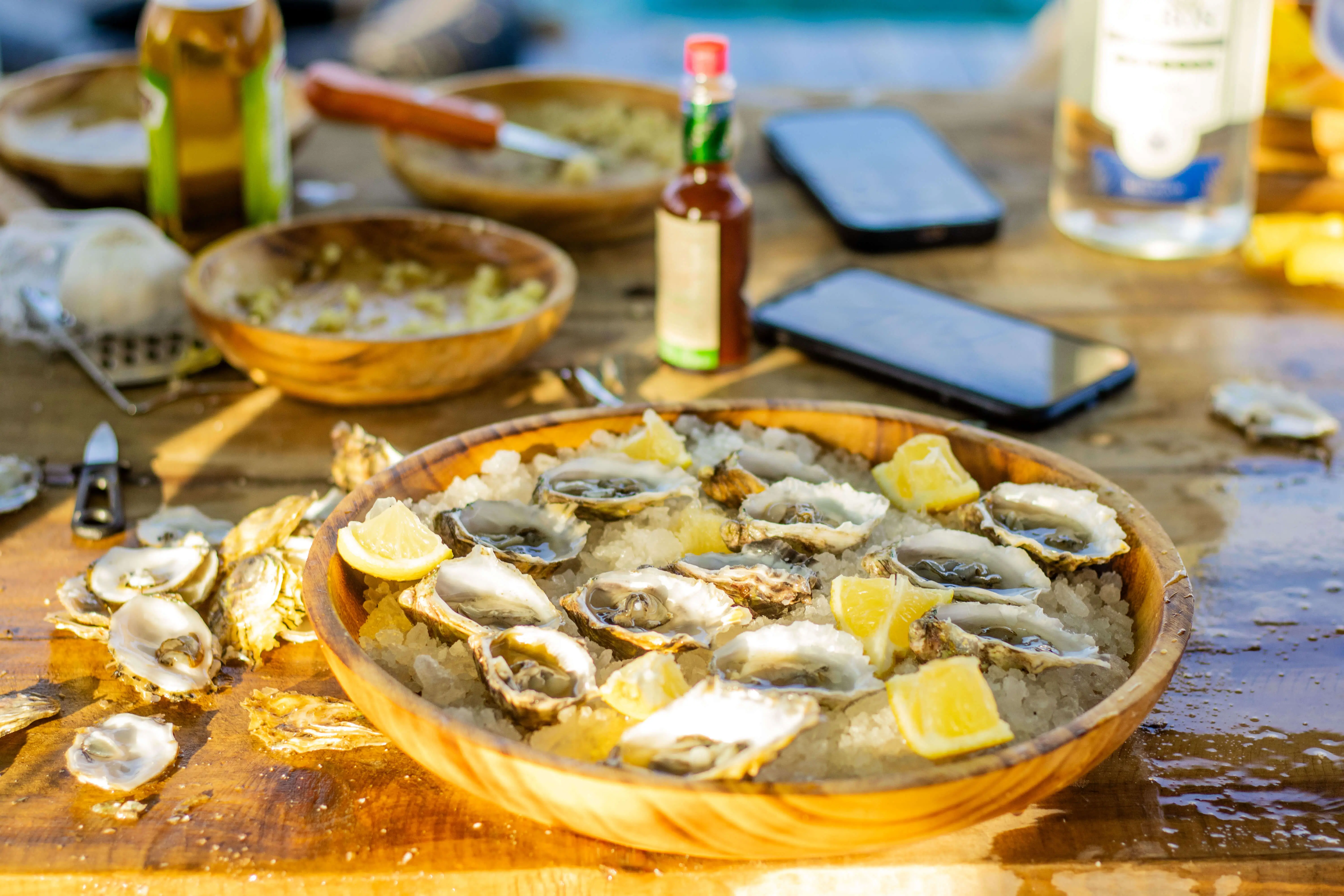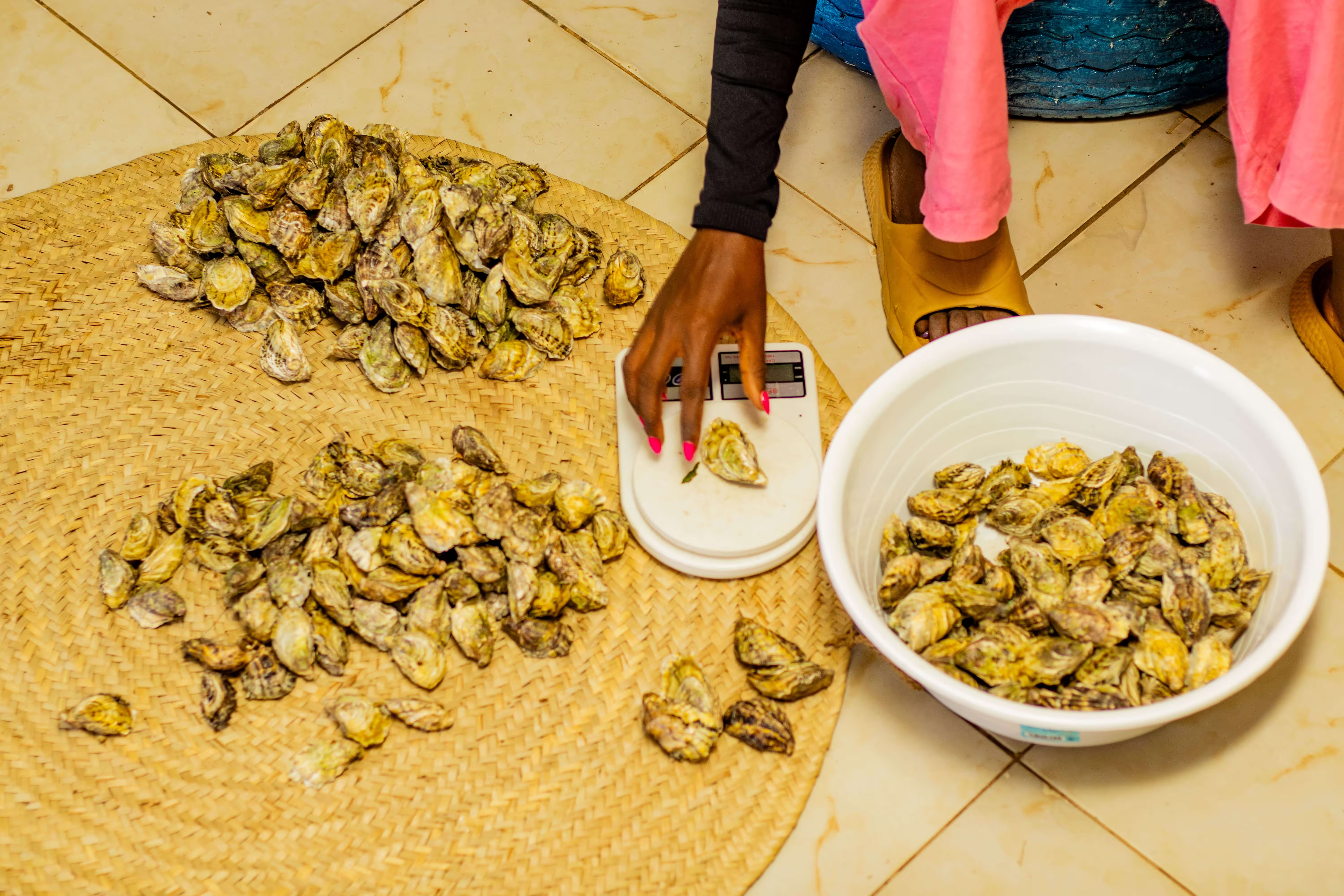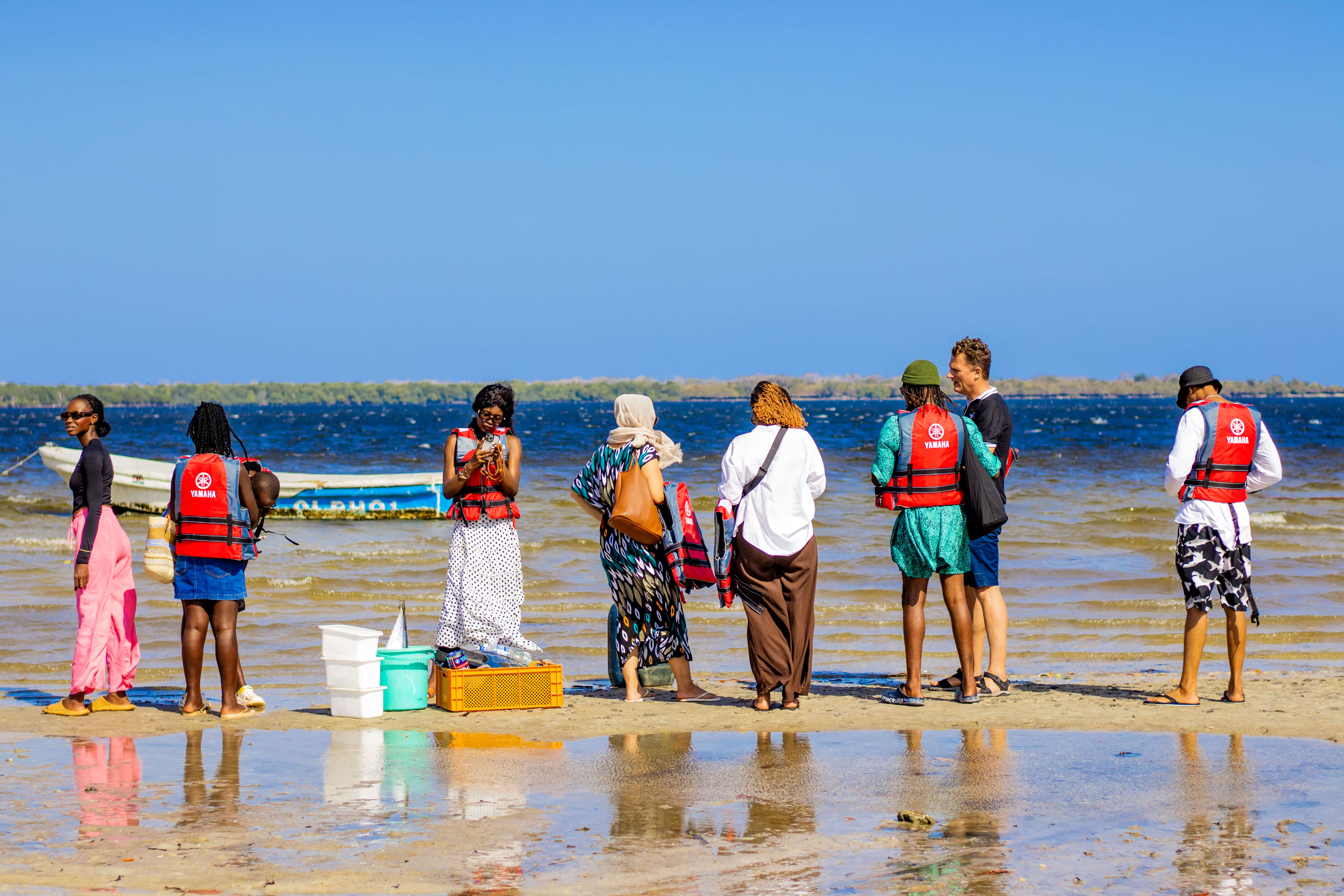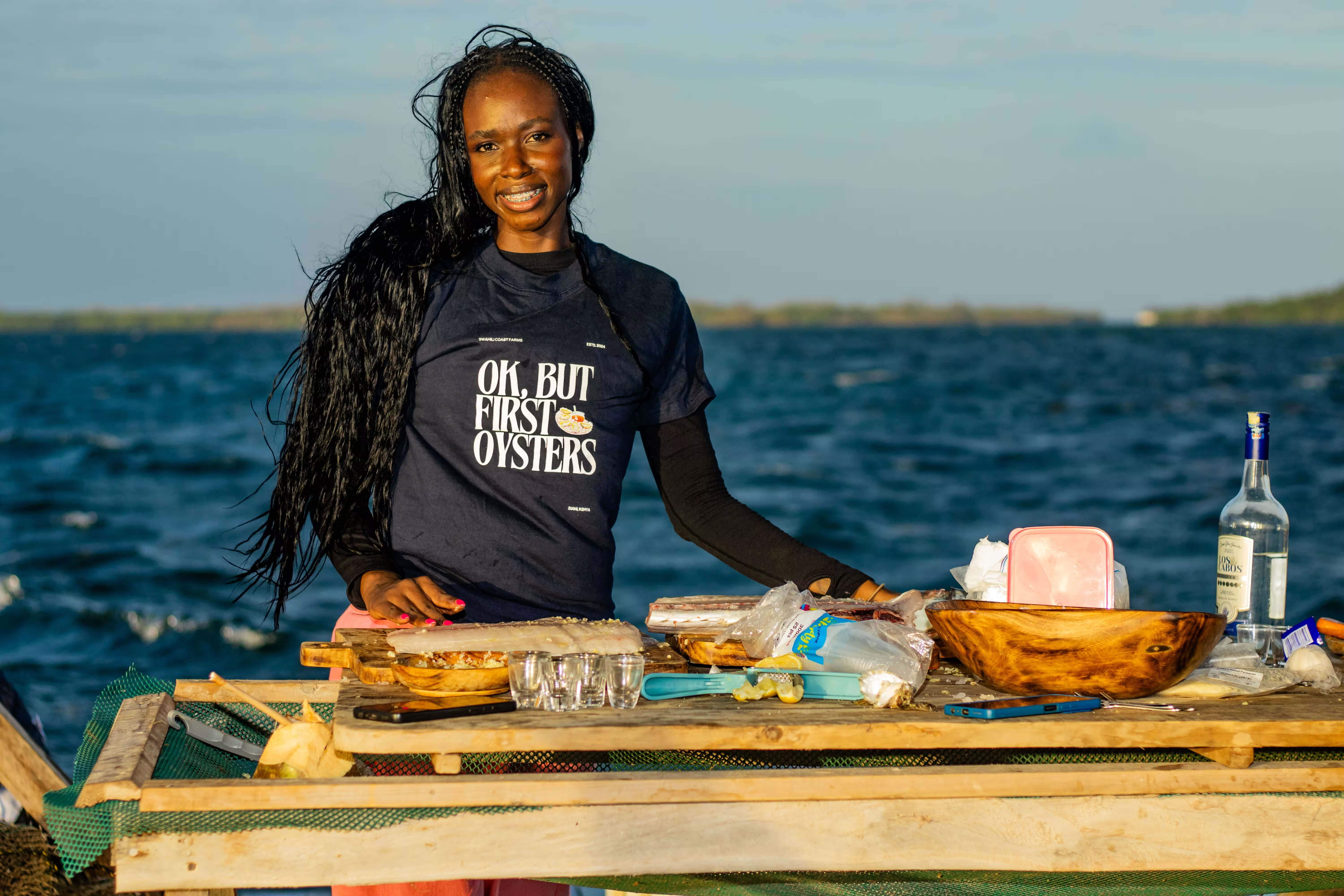
We Love Oysters
Oyster farming has a rich history dating back to the Romans. In Kenya, it is a relatively recent development that we have passionately embraced. Along the Swahili Coast, we have adapted global best practices to our unique local environment.
Why Gazi Bay?
Our farm sits in the pristine waters of Gazi Bay, far from industry. The mangrove forests and coral reefs create the perfect nutrient-rich conditions for growing high-quality oysters year-round.
Why It Matters
For People: Nutrient-dense superfoods packed with protein & omega-3s.
For Environment: One oyster filters 50 gallons of water daily.
For Community: We provide stable income for local families.
Fun Fact
Did you know oysters are gender fluid? They can change from male to female multiple times during their life!



